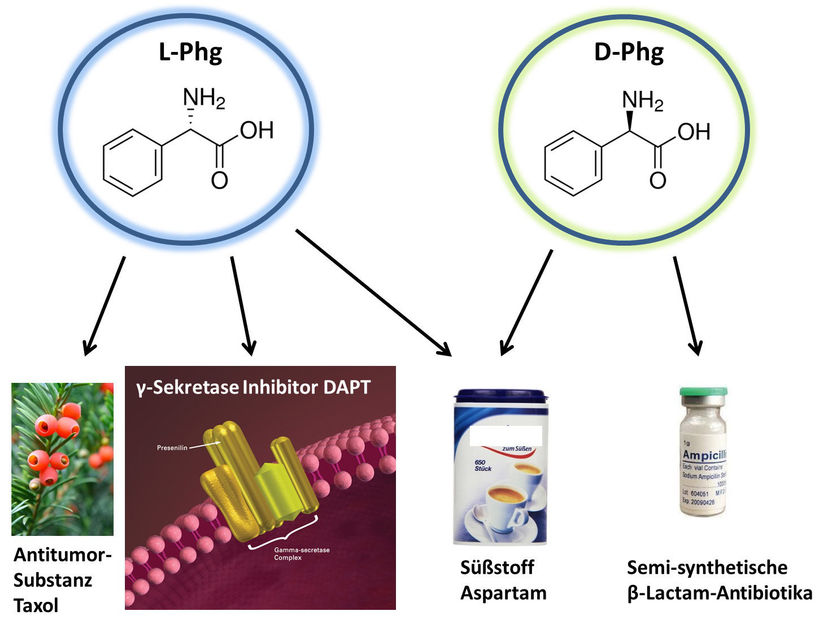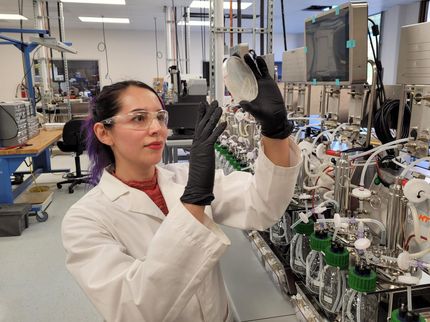Sustainable production of an industrially relevant amino acid by fermentation
Scientist uses Synthetic Biology for the environmentally friendly production of D-phenylglycine
Advertisement
A team led by Professor Yvonne Mast from the Leibniz Institute DSMZ-German Collection of Microorganisms and Cell Cultures GmbH in Braunschweig has succeeded in establishing a fermentative pathway for the production of D-phenylglycine - an important building block for products of the pharmaceutical industry. The researchers have now published their results in the internationally renowned journal Applied Microbiology and Biotechnology. The newly established synthesis pathway opens up the possibility of producing important building blocks for antibiotics, sweeteners or deodorants in an environmentally friendly and resource-saving way.

Structure and possible applications of phenylglycine
DSMZ/Mast
Phenylglycine - essential building block for the fine chemicals industry
Phenylglycine is a rare, non-proteinogenic amino acid and only occurs as a component of natural microbial substances such as certain antibiotics. In nature, the amino acid is produced as L-phenylglycine (L-Phg), but the stereoisomeric D-phenylglycine (D-Phg) is much more interesting for industrial use. Since D-Phg does not occur in nature it has to be produced by chemical synthesis. D-Phg is used as a building block for the production of numerous semisynthetic ß-lactam antibiotics such as ampicillin. At present, more than 5,000 tons of D-Phg are produced annually worldwide by conventional means. Petrochemical raw materials are used as starting materials and various chemicals and solvents are used for production.
Fermentative production of D-phenylglycine
In fermentative production, substances are produced by microorganisms. The advantages of fermentation are manifold: the starting materials are mostly renewable substances such as glucose and the end products have a high enantiomeric (optical) purity. For their experiments, Professor Mast and her team used Streptomyces pristinaespiralis, a bacterium belonging to the group of actinomycetes. This bacterium naturally produces the amino acid L-Phg as part of the antibiotic pristinamycin. Using a synthetic biology approach, the research group succeeded in modifying the natural L-Phg biosynthetic pathway from S. pristinaespiralis in such a way that the desired D-Phg is produced. The artificial biosynthetic pathway can now also be used for production in other host strains. "Although the production rates are still low," summarizes Yvonne Mast "we have not yet fully exploited the possibilities of genetic engineering and are currently exploring ways to increase the production rate. This is the only way to make the sustainable production of such versatile building blocks as D-phenylglycine really interesting for industry.”
























































